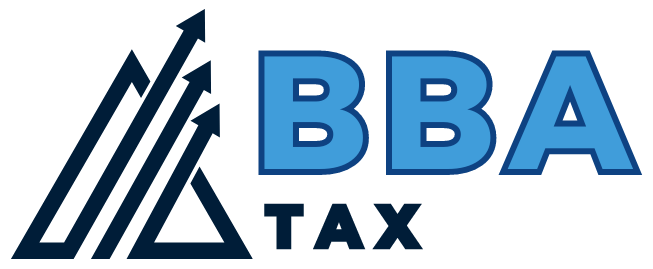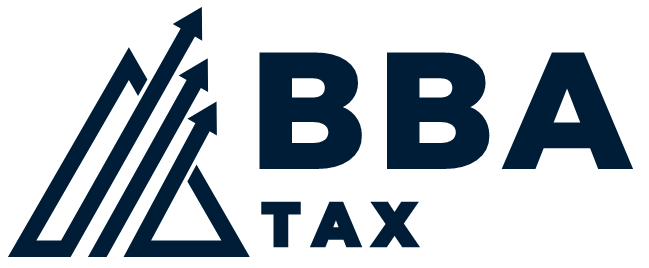Starting a business in Canada often begins with one key decision: Should you operate as a sole proprietorship or incorporate your business? Each option has distinct advantages, disadvantages, tax implications, and legal considerations. Understanding these differences is crucial for making the best decision for your unique circumstances.
At BBA Tax, a leading accounting firm in Ottawa, we specialize in helping entrepreneurs and small business owners navigate the complexities of starting and managing a business. This guide will provide a comprehensive overview of the distinctions between sole proprietorship and incorporation, helping you make an informed decision.
Table of Contents
- What is a Sole Proprietorship?
- What is Incorporation?
- Key Differences Between Sole Proprietorship and Incorporation
- a. Legal Structure and Liability
- b. Tax Implications
- c. Business Name Protection
- d. Administrative Burden
- e. Access to Capital
- Pros and Cons of Sole Proprietorship
- Pros and Cons of Incorporation
- How Taxes Differ Between Sole Proprietorship and Incorporation
- a. Tax Rates
- b. Deductions
- c. Filing Requirements
- When to Choose Sole Proprietorship
- When to Incorporate Your Business
- How BBA Tax Can Help with Sole Proprietorships and Incorporation
- Making the Right Decision for Your Business
1. What is a Sole Proprietorship?
A sole proprietorship is the simplest and most common business structure in Canada. It involves one individual owning and operating the business. The owner and the business are legally considered the same entity, meaning all profits, losses, and liabilities belong to the owner.
Key Features:
- Easy and inexpensive to set up.
- Minimal regulatory requirements.
- Profits are taxed as part of the owner’s personal income.
Sole proprietorships are ideal for freelancers, contractors, and small-scale entrepreneurs who want a straightforward way to start a business.
2. What is Incorporation?
Incorporation is the process of legally registering a business as a separate entity. Once incorporated, the business becomes distinct from its owners (shareholders) and has its own legal rights and obligations.
Key Features:
- Limited liability for shareholders.
- The business can own assets, enter contracts, and incur debts independently.
- More complex tax obligations but potential for greater tax savings.
Incorporation is often preferred by businesses looking to grow, seek investment, or protect personal assets from business liabilities.
3. Key Differences Between Sole Proprietorship and Incorporation

a. Legal Structure and Liability
- Sole Proprietorship: The owner is personally liable for all debts and obligations of the business.
- Incorporation: Shareholders have limited liability; their personal assets are generally protected.
b. Tax Implications
- Sole Proprietorship: Income is taxed at personal income tax rates, which can be higher for higher earnings.
- Incorporation: Corporations benefit from lower tax rates on active business income and the ability to defer taxes through retained earnings.
c. Business Name Protection
- Sole Proprietorship: Business name protection is limited and depends on provincial registration.
- Incorporation: The business name is protected across Canada if federally incorporated.
d. Administrative Burden
- Sole Proprietorship: Minimal paperwork and regulatory requirements.
- Incorporation: More administrative tasks, including filing annual returns and maintaining corporate records.
e. Access to Capital
- Sole Proprietorship: Limited to personal savings and loans.
- Incorporation: Can issue shares and attract investors.
4. Pros and Cons of Sole Proprietorship
Pros:
- Easy to set up and manage.
- Full control over decision-making.
- Profits are not shared.
Cons:
- Unlimited personal liability.
- Higher personal tax rates for significant earnings.
- Limited access to funding.
5. Pros and Cons of Incorporation
Pros:
- Limited liability protection.
- Lower corporate tax rates.
- Easier access to investment opportunities.
Cons:
- Higher setup and maintenance costs.
- Increased regulatory and administrative requirements.
- Separate tax filings for the corporation and shareholders.
6. How Taxes Differ Between Sole Proprietorship and Incorporation

a. Tax Rates
- Sole proprietors are taxed at personal income tax rates, which can be as high as 33% federally, plus provincial taxes.
- Corporations benefit from the small business tax rate (9% federally) on the first $500,000 of active business income.
b. Deductions
- Sole proprietors can deduct business expenses directly from their personal income.
- Corporations have access to additional deductions, such as salaries paid to owners and dividends.
c. Filing Requirements
- Sole proprietors file a T1 return with a business schedule.
- Corporations file a T2 corporate tax return.
7. When to Choose Sole Proprietorship
Sole proprietorship is a good choice for:
- Individuals testing a business idea.
- Freelancers and contractors with low-risk operations.
- Those looking for minimal setup costs.
8. When to Incorporate Your Business
Incorporation is ideal for:
- Businesses with high liability risks.
- Entrepreneurs seeking investment or loans.
- Companies earning significant profits and looking to save on taxes.
9. How BBA Tax Can Help with Sole Proprietorships and Incorporation

At BBA Tax, we specialize in guiding businesses through the decision-making process between sole proprietorship and incorporation. Our comprehensive services include:
- Business Structure Advisory: We help you choose the best structure for your needs.
- Tax Preparation and Filing: Accurate and timely filing for both personal and corporate taxes.
- Bookkeeping: Keep your financial records in order, whether you’re a sole proprietor or incorporated.
- Incorporation Services: Assistance with legal registration and understanding tax obligations.
- Financial Management: Tailored advice to help you grow your business.
Whether you’re starting out as a sole proprietor or ready to incorporate, our Ottawa-based accounting firm provides the expertise you need to succeed.
10. Making the Right Decision for Your Business
Choosing between sole proprietorship and incorporation is a significant decision that can impact your tax obligations, liability, and business growth. While sole proprietorship offers simplicity and minimal costs, incorporation provides liability protection and potential tax savings.
At BBA Tax, we help small business owners and entrepreneurs in Ottawa and beyond make informed decisions that align with their goals. Contact us today to schedule a free consultation and take the next step in your business journey.



